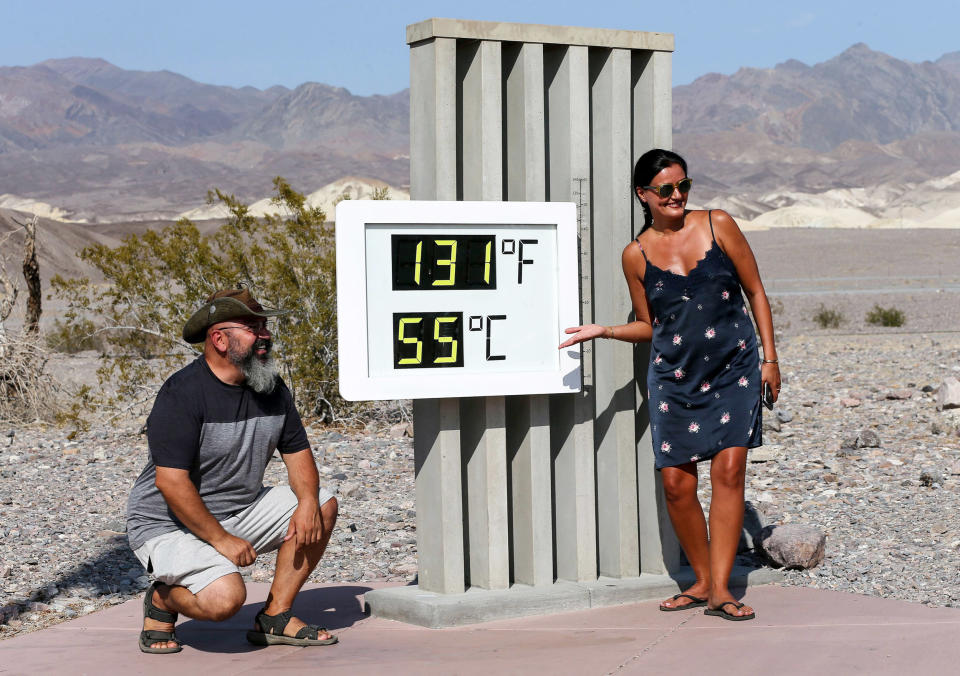2020 was second-hottest year on record, NOAA says
As if catastrophic wildfires, a record-breaking hurricane season and a pandemic that brought the world to its knees weren't enough, 2020 nearly became the hottest year in recorded history.
Data released Thursday by the National Oceanic and Atmospheric Administration, or NOAA, showed that 2020 now ranks as the second-hottest year, with average temperatures hitting 58.77 degrees Fahrenheit — a mere 0.04 degrees cooler than 2016, which holds the record.
The Northern Hemisphere experienced its hottest year on record, surpassing the 20th century average by 2.3 degrees, according to NOAA. Oceans were also “exceptionally warm” last year, with record-high sea surface temperatures logged across parts of the Atlantic, Pacific and Indian oceans.
Above-average temperatures also shrank Arctic sea ice to near record lows, NOAA scientists said. Satellite observations revealed that Arctic sea ice in 2020 covered an average of 3.93 million square miles, tying 2016 for the smallest on record.
The milestones come after historic wildfires in Australia and the U.S. and extreme weather events around the globe have increased the pressure on governments to address global warming and the devastating impacts of climate change.
Though NOAA has designated 2020 as the second-hottest year since record-keeping began in 1880, there are some discrepancies among other agencies that conduct similar measurements. A NASA analysis found that global average surface temperatures in 2020 tied with 2016, while the World Meteorological Organization still has 2016 in the lead.
The discrepancies among these groups owe to subtle differences in how they account for data gaps over parts of the planet that lack reliable weather stations, such as in the polar regions or over wide swaths of the ocean.
But experts say these small differences are inconsequential against the broader backdrop of global warming. The planet’s seven warmest years on record have all been since 2014, according to NOAA, with 10 of the warmest years occurring since 2005.
“The last seven years have been the warmest seven years on record, typifying the ongoing and dramatic warming trend,” Gavin Schmidt, a climate scientist at NASA’s Goddard Institute for Space Studies, said in a statement. “Whether one year is a record or not is not really that important — the important things are long-term trends. With these trends, and as the human impact on the climate increases, we have to expect that records will continue to be broken.”
Scientists have known that the effects of climate change are more pronounced in the Arctic, where even tiny temperature differences can have big consequences. NASA’s analysis revealed that over the past 30 years, the region is heating up more than three times as fast as the rest of the planet, Schmidt said.


